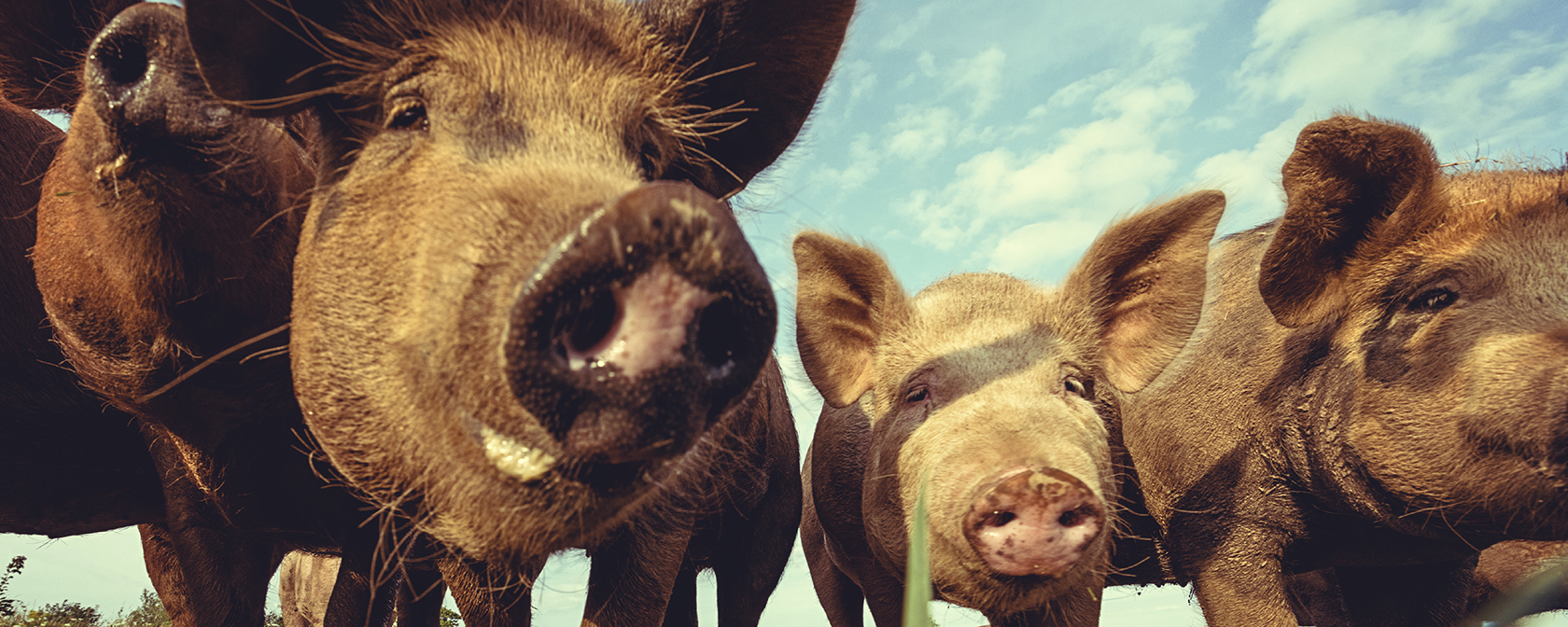Today’s approval by the U.S. House of Representatives of a FY23 budget package, H.R. 8294, produced sweeping animal protection gains across a range of concerns. Countless animals will benefit from the additional protections and funds that the package directs. Getting those provisions into this draft federal budget and keeping them there is an absolute priority for us, and we could not be more excited at the results so far. That is why this cluster of six appropriations bills is such an important focus of our animal protection agenda in Congress. We’ll keep fighting to sustain these wins in the final deal.
In terms of the budget for the U.S. Department of Agriculture, the most remarkable provision is a permanent ban on horse slaughter operations in the United States, something we’ve been seeking for years. Other welcome outcomes include increased funding and support for stronger enforcement of the Animal Welfare Act (AWA) and the Horse Protection Act (HPA). There is also report language encouraging the USDA to help transition producers toward cage-free eggs—and, for the first time, crate-free pork. Legislators also called upon the agency to issue a report concerning its program to monitor and minimize COVID-19 infection on mink farms.
On horse soring, a priority focus for us, the bill provides $4.1 million for HPA enforcement, $1 million more over FY22. Report language underscores the USDA’s primary responsibility for enforcement of this law, including the training of inspectors, and presses the agency to publish and finalize its proposed HPA soring rule.
On AWA enforcement, the committee approved report language directing the USDA to properly document any interference with or failure to allow access for inspection, as well as each failure to comply with animal welfare standards. Given the troubling signs of USDA’s lax enforcement over the years, report language calls for an end to the use of “teachable moments” or any program that obscures inspection findings.
With regard to USDA-operated laboratories, the bill permanently requires APHIS inspections of Agricultural Research Service (ARS) facilities for compliance with AWA regulations and standards, and encourages ARS facilities to explore and pursue the post-research placement of dogs, cats and other domesticated animals, something the FDA has already begun to support.
The bill permanently bars the use of funds to license disreputable “Class B” random source dealers, and the report directs USDA to prioritize enforcement of licensing requirements for online dog dealers, and to strengthen its collaboration with the Department of Justice on AWA enforcement to ensure access to evidence needed to initiate cases. It also sustains funding for the PAWS grant program that expands shelter options for domestic violence survivors with pets.
We have a special debt of gratitude to Agriculture Appropriations Chairman Sanford Bishop, D-Ga., for his key role in securing many of the provisions in the minibus, as well as to Reps. Earl Blumenauer, D-Ore., and Chris Smith, R-N.J., for mobilizing the bipartisan support of 203 Representatives for many provisions.
The package also includes some great news for animal-assisted therapy in the Veterans Administration budget. Committee report language directs the VA to provide a report on the status of the pilot program to assess the therapeutic value of service dogs in the treatment of Post-Traumatic Stress Disorder. We supported the Puppies Assisting Wounded Servicemembers (PAWS) Act of 2021, the underlying legislation that created the program. We’re also glad the package recommends that the VA use no less than $5 million for its adaptive sports program for equine therapy, another program aimed at helping veterans with PTSD, as secured in an amendment by Rep. Andy Barr, R-Ky.
This was a banner year for Interior appropriations as well, as the House FY23 minibus includes increased support and language concerning trophy hunting, the Endangered Species Act, manatee protection, and the federal wild horse and burro program.
Responding to concerns over the U.S. Fish and Wildlife Service’s issuance of hunting trophy import permits for protected species, the bill prohibits the use of funds to process import permit applications of hunting trophies of African lions and elephants from Tanzania, Zambia, and Zimbabwe, where their populations are in steep decline. The bill also directs the FWS to carefully assess whether its current hunting trophy import policy and permitting procedures are based on evidence that exporting countries are adequately protecting these species.
This year, the bill lays out criteria for the agency’s review of the trophy import procedures. The United States is the world’s largest importer of hunting trophies of protected species, and it is imperative that the FWS adhere to Endangered Species Act requirements for these imports. We’re very pleased that the House rejected an amendment to strike these crucial provisions on hunting trophies.
Understanding that congressional appropriations to implement the ESA have not kept pace with the number of listed species or the contemporary challenges of endangered species conservation, the package’s FY23 allocation exceeds that of FY22 by more than $77 million. It also includes funding, added as an amendment by Rep. Vern Buchanan, R-Fla., for FWS to update its manatee population surveys and to rehabilitate sick manatees. This species faces serious threats from boat collisions, water quality degradation and habitat loss.
Thankfully, the FY23 minibus continues to prohibit the sending of our nation’s wild horses and burros to slaughter. With its $19 million increase for the Bureau of Land Management, it includes a directive that the agency energetically implement a non-lethal program for wild horse and burro management, one based on well-established fertility control methodologies. We have joined with other organizations to advance a strong, rational and effective plan for managing wild horse and burro herds on our western ranges, and we’ll be pressing the BLM to make good on its commitment to improve its herd management.
The congressional budgeting process offers tremendous opportunities for advancing animal protection work across the board. This year’s results make the point.




